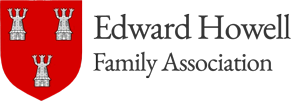Abandoning the Promises of Royal Power
While trying to reason with himself about the potential murder of King Duncan, Macbeth says that “I have no spur/ To prick the sides of my intent, but only/ Vaulting ambition” (Shakespeare 1.7.25-27). Macbeth does eventually murder King Duncan and thus sets in motion the spiral of events that led to his demise as a result of his own corruption and greed for power. Throughout history there have been numerous examples of people who attained power and were corrupted by it. Julius Caesar, Oliver Cromwell, and Napoleon Bonaparte are just a few examples. However, a far more rare occurrence is for someone to walk away from power. The Ancient Roman military leader and statesman Cincinnatus walked away from power and simply returned to his farm. Edward Howell and Richard ap Hywel both demonstrated some of the key characteristics of Cincinnatus by leaving a substantial amount of potential power behind to have the freedom to live their lives how they wanted and not be bound to the dramatics of a royal court or to uphold the social expectations as members of the aristocracy.
Edward Howell was born in 1584 and was the eldest son of Henry Howell and Margaret Hawten. He inherited Westbury Manor in Marsh Gibbon, Buckinghamshire, England and was considered the lord of the manor upon the death of his father, Henry Howell. Edward Howell later “conveyed Westbury Manor to Richard Francis, a wool merchant of Buckinghamshire, for £1500 on 8 June 1638.” (Clark 23), however, he was likely not present for the conveyance. Sometime in the mid to late 1630s Edward Howell and his family crossed the Atlantic Ocean and settled in Lynn, Massachusetts. During this emigration, Edward Howell renounced his official English social status and the security for his and his family’s future that went with it. He likely took this substantial risk because of ongoing religious persecution and division that plagued England after the creation of the Church of England. Edward Howell was a Puritan and thought that the excessiveness of the Church of England caused corruption and wanted the church to be reduced to its most “pure” form. Despite discarding his official status, Edward Howell still maintained the respect of the townspeople and his colleagues because he was granted 500 acres in 1638 during the division of the town.
Edward Howell was among the handful of men that left New England to settle the town of Southampton. It was agreed that Southampton would be a part of the Connecticut Colony and the elected officials of Southampton would have to travel back across the Long Island Sound to Connecticut when it was necessary (Southampton officials were excused from most government sessions because it was significantly harder for them to travel there). In 1647, Edward Howell is listed in the public records of the Colony of Connecticut as a magistrate representing Southampton. In these same records, he appears as a magistrate for several terms and served on a handful of committees. Religion still heavily influenced the local government of Southampton, but compared to most local governments in Massachusetts, there was a considerable amount separation between church and state. Which permitted people like Edward Howell to have an active role in their local government.
The DNA and documented evidence from the Howell family suggests that the family was of Welsh descent. Primary sources prove that William Howell was the grandfather of Edward Howell, however, all records preceding William Howell are too fragmented to form a genealogical tree that is confirmed by records. Nevertheless, a family tree can be logically assumed by analyzing those fragmented documents. It is very probable that William Howell’s father was John Howell and that his father was Richard ap Hywel (“Hywel” is the traditional Welsh spelling of the anglicized form “Howell”). Richard ap Hywel was born around 1457 and inherited Mostyn Hall in Flintshire, Wales. During the Wars of the Roses, Henry Tudor (some sources claim it was Jasper Tudor, who was Henry Tudor’s uncle) allegedly sought refuge at Mostyn Hall and according to legend, “Henry Tudor was forced to escape through a window… after a party loyal to the reigning king Richard III had arrived to apprehend him.” (“Richard ap Hywel, Henry Tudor and the “King’s Hole”). There is some genealogical evidence that suggests Richard ap Hywel was a distant relative of the royal Tudor family.
Richard ap Hywel fought for Henry Tudor at the Battle of Bosworth Field in 1485 and commanded over 1000 men. This battle between Richard III and Henry Tudor (who afterwards would be crowned Henry VII in the same year) was essentially “the last battle of the Wars of the Roses, and it established the Tudor dynasty on the English throne” (“Battle of Bosworth Field 2022) which would survive until James I of England took the throne in 1603. During the battle Richard ap Hywel “laid Richard [King Richard III] low, and Rhys ap Thomas gave him the final blow” (“Battle of Bosworth Field – Participants of Note”). After the battle, Henry VII presented Richard ap Hywel with his sword and belt that he wore during the assault and asked Hywel to join him in his royal court. Richard ap Hywel declined Henry VII’s offer and said that he wanted to “dwell among mine [sic] own people” (Pennant 58).
Works Cited
“Battle of Bosworth Field.” Encyclopædia Britannica, Encyclopædia Britannica, Inc., 15 Aug. 2022, https://www.britannica.com/event/Battle-of-Bosworth-Field.
Clark, Cynthia Ward. Edward Howell of Westbury Manor, Marsh Gibbon, Buckinghamshire and Southampton, Long Island, New York. Vol. 1, Otter Bay Books, 2021.
Connecticut Council. The public records of the Colony of Connecticut. Vol. 1, Hartford, 1850. Internet Archive, https://archive.org/details/publicrecordsofc001conn/page/424/mode/2up
Davies, Sir William Llewelyn. “MOSTYN family of Mostyn Hall, Flintshire.” Dictionary of Welsh Biography, 1959, https://biography.wales/article/s-MOST-MOS-1301
Essex County Court. Records and Files of the Quarterly Courts of Essex County, Massachusetts. Vol. 2, Park River Researchers, 1912. Google Books, https://books.google.com/books?id=FpURKEStvwQC&dq=lord+brooks+lynn+massachusetts+1638&source=gbs_navlinks_s
“Goodman History and Genealogy.” Battle of Bosworth Field – Participants of Note, Goodman History and Genealogy, www.goodmanhistory.com/england/edward1/bosworth/?doing_wp_cron=1661015399.7070240974426269531250. Accessed 1 Sept. 2022.
Pennant, Thomas. The History of the Parishes of Whiteford and Holywell. B. and J. White, 1796. Google Books, https://books.google.com/booksid=Z5suAAAAMAAJ&vq=hywel&source=gbs_navlinks_s
“Richard Ap Hywel, Henry Tudor and the ‘King’s Hole’ (1485).” Mostyn Estates, Mostyn Estates, https://www.mostynestates.co.uk/richard-ap-hywel-and-henry-tudor/.
Shakespeare, William. Macbeth. Ed. Barbara Mowat and Paul Werstine, The Folger Shakespeare Library, 1623. Folger Shakespeare Library, https://shakespeare.folger.edu/shakespeares-works/macbeth/?_ga=2.256237387.1350600462.1662167401-1650548367.1662167401


